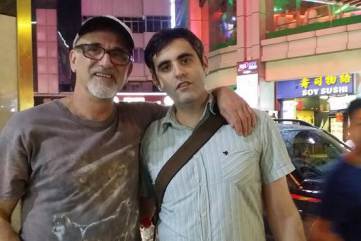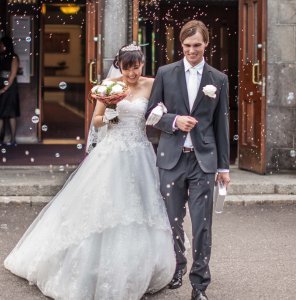Ray Hecht's Blog, page 25
December 20, 2015
Guangzhou – Reading & Chinglish
In light of so much interesting content last week, I have decided to combine an update of my book promotions with Chinglish, as well as a video below. Hope this makes for a doubly entertaining read.
Last weekend we went to Guangzhou, and enjoyed Yuexiu Park. Though there was lots of uphill walking, it’s nice to see pagodas and the beautiful nature settings. Paddleboating was most fun indeed.
And so many Chinglish signs. Glad to see that they haven’t changed the place in years :)
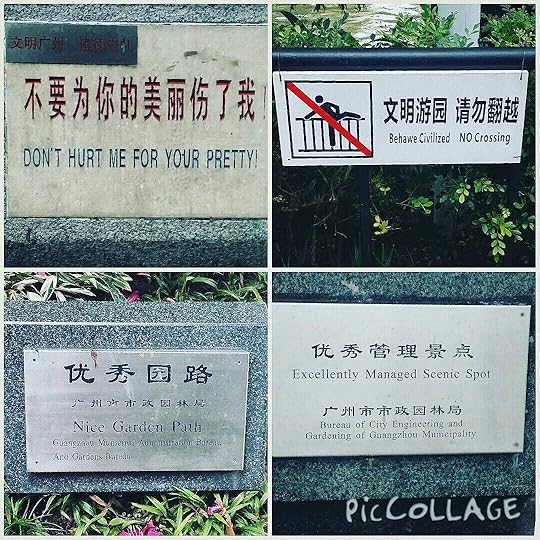
Later, it was a treat to discover this awesomely named dim sum restaurant. Delicious and PRO!!!

Finally, Saturday night I came to read ma’ book at the awesome Open Mic event at one dimly-lit hip art bar Loft345…
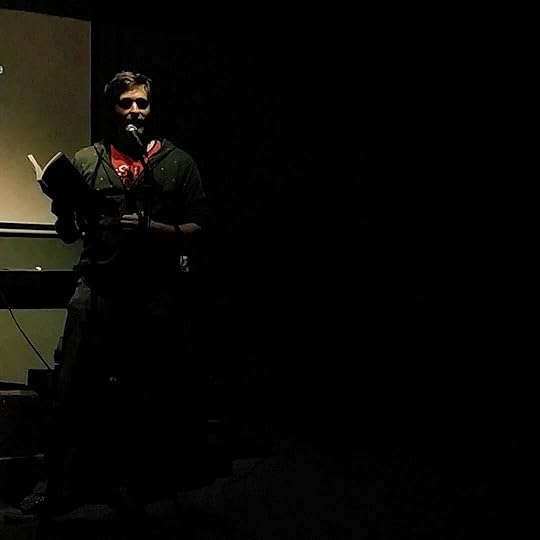
Always nervous to do these sorts of things, it’s even worse to record and hear myself. Do I really sound like that? Well, I did my best and that’s all that can be done; seems to work out most of the time.


December 18, 2015
South China Morning Blues- book review
Ray Hecht is an American writer based in Shenzhen who I know through his personal blog about his varied experience in China’s metropolis of the moment (and perhaps future). He’s lived in both Guangzhou and Shenzhen actually, and he’s put his abundant Cantonese experience into use in a recently released novel South China Morning Blues, for which I gladly put aside my China cynicism and dug into to review.
SCMB (as I’ll call the novel from this point) takes place in Shenzhen, Guangzhou and Hong Kong, the 3 giants of the Pearl River Delta. While it is China’s manufacturing powerhouse and the world’s factory, this region is rarely featured in China literature, which often are set in Beijing or Shanghai. It can be easy to forget that South China, specifically Guangdong, was among the first Chinese regions to come into contact with Europeans through trade starting from the 17th century.
Location…
View original post 457 more words


December 15, 2015
Bookish.Asia Review: South China Morning Blues
http://bookish.asia/south-china-morning-blues-ray-hecht/
The Pearl River Delta is home to Guangzhou, Hong Kong, Macau, Shenzhen, and cities of millions – such as gritty workshops to the world Dongguan and Zhongshan – that you’ve never heard of. Despite being the powerhouse of the country’s decades-long economic boom, China’s southern cities have been largely ignored by English-language novelists for the more glamorous settings of Shanghai and Beijing. When stories are set in the south, they are usually period pieces taking advantage of the region’s rich historical backdrops of war, revolution, and the treaty port clash of cultures. It was a welcome change to come across a novel set in modern-day Guangdong.
South China Morning Blues is divided into three sections, each named after a city in the region. The multiple storylines begin in Shenzhen, move to Guangzhou, and end on Lamma Island in Hong Kong. The novel provides a kaleidoscopic view of urban China as seen through the eyes of a dozen mostly twenty-something Chinese and foreign characters. There’s Marco, a macho American businessman looking to get laid at every opportunity; Danny, an English teacher finding his feet; intellectual stoner Eric; artist Ting Ting; American-Chinese journalist Terry; and… I’ll stop there. Twelve is too many to run through, which raises the question of whether that number of characters makes for an overcrowded cast.
Although there’s no consensus on the maximum number of main characters a novel should contain, it’s generally thought that eight or nine is the upper limit for a medium-length work. Irvine Welsh’s Trainspotting, for example — which, with its multiple narrator structure, was one of Hecht’s inspirations — has perhaps seven main characters. When I opened SCMB, and realized that Hecht had chosen twelve because he wanted one character for each animal sign of the Chinese zodiac, the approach seemed like a recipe for disaster.
Surprisingly the big cast works. Credit goes to the author for how he does this by adding a couple of characters at a time, building up layers, and coming back to earlier people as some of storylines are threaded together. The effect is an unusual but engrossing reading experience, an immersive feel of varying waves of engagement. The number and range of characters, subplots, and places gives the novel an epic flavour; it’s a big canvas which contrasts with the mundane considerations of daily life that the characters describe.
South China Morning Blues is written in a stream-of-consciousness, first-person narration. Unavoidably, this is sometimes inane and slow moving; but it’s also often funny and, above all, honest. The novel is painfully true to life: how we actually were when young and finding our way, rather than how we would like to remember ourselves. I laughed aloud in numerous places, perhaps most often for Danny, the non-descript English teacher andlaowai newbie who is soon playing the veteran. In one such scene, a fellow English teacher – young, fresh off the boat, and completely clueless – asks Danny how long he has been in China.
“Well,” I say. “I’ve been in Shenzhen for a year now, but in China almost two years. Before here I lived in a town you’ve never heard of up north.”
“Wow,” he says, easily impressed. I feel cool, sophisticated.
One of the pleasures of SCMB is seeing how characters grow up (or don’t) over the two-year period of the novel. Eager to know how things worked out for them, I raced through the book in three days, pleased with the ending and yet sad the story had come to a close.
SCMB contains a lot of drinking, drug-taking, and sex, but not unrealistically so. Alcohol and drugs are a social lubricant and stress-relief for people in a new place. Likewise, business entertaining in China involves heavy drinking and frequently a side-dish of whoring, so it’s not unnatural that when Marco, the self-styled Casanova, is on a business trip to Dongguan, he should partake of the city’s infamous delights. Marco takes two hookers back to his hotel and is working his magic while the women watch television:
In front of me, I have two bare asses. They cost me only a grand each. That’s in RMB.
Enthusiastically, I slap the one on the left and pound away against the other one. She insisted that I wear a rubber. That part never gets lost in translation. This experience would have felt better without, but whatever….
I wish that I could persuade these girls to perform some lesbian shit. I push their heads together. They kind of kiss for a second, but then smirk and turn away. Don’t these bitches watch porn, or what?
My cock feels ready to explode out from under me, almost like I should call in a bomb threat to the hotel or something.
At times SCMB can be a bit depressing in portraying the shallowness of many Chinese–foreign interactions, but once again it rings true. In fact, I’ve met people like all twelve of the story’s characters. Much of the realism comes from author Ray Hecht writing about what he has himself experienced or seen, having lived in the novel’s two main locations, Shenzhen and Guangzhou. Hecht, who was born in Israel but grew up in the American Midwest, arrived in China in 2008 at the age of twenty-six. He works in Shenzhen as a writer and teacher, and has written two previous novels: The Ghost of Lotus Mountain Brothel and Loser Parade.
South China Morning Blues deserves to sell well. It’s easy to see the novel becoming a big hit among the expat population in China, but it should also appeal to general readers. Hecht’s Pearl River Delta tapestry is at heart a racy drama exploring universal themes, so no knowledge of China is required to enjoy it.
* * *
South China Morning Blues is published by Blacksmith Books. It’s available from the publisher’s website, Amazon, and bookstores in Hong Kong.
Author Ray Hecht has a website chronicling aspects of his writing and life in Shenzhen.
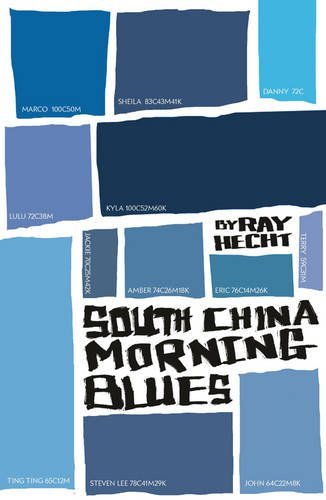
By John Ross | December 11th, 2015


December 13, 2015
South China Morning Blues book review by Nicki Chen
http://nickichenwrites.com/wordpress/china/south-china-morning-blues/
Book Review of South China Morning Blues
When I look back on my twenties, I’m amazed at how much I crammed into that decade—and also at how far-reaching the consequences of my decisions were. I shouldn’t be amazed. We’re meant to choose our path in life during those years. And even though we can reinvent ourselves to some extent later, there’s no getting around it, it’s usually during our twenties that we at least make a good start in figuring out who we are and where we’re going.
The characters in Ray Hecht’s new book, South China Morning Blues, are all in their twenties. And to make matters even more challenging, they live in what may be the fastest changing region of the fastest changing country in the world, the Pearl River Delta region in southeastern China, a megalopolis that the World Bank Group considers the largest urban area in the world in both size and population. Hecht, an American, has lived there, mostly in the city of Shenzhen, since 2008. He knows the area well.
The twelve young men and women who tell their stories in South China Morning Blues, live and work in Shenzhen, Guangzhou, and Hong Kong. They’re Chinese, American, Canadian, and African. None of them are quite clear on what they want or how to get it.
The first character we meet, Marco, is a sleazy American businessman who likes to show off and pick up girls. Since he can’t be bothered to learn Chinese, his Chinese protégé, Jackie, takes advantage of him and steals his clients. After losing his job, Marco starts a new business, a club that caters to expats. When he falls in love with and marries a Chinese woman, he’s challenged to become his better self.
Sheila’s parents are from another generation. They don’t understand a modern Chinese career woman like her. Eventually Sheila will realize that even though she’s modern in some ways, the Chinese duty to sacrifice for family obligations is still deep inside her.
Terry is an American-born Chinese, a writer, and an alcoholic. To impress his Chinese girlfriend, Ting Ting, he finally cleans up his disgusting apartment. We can only hope that Ting Ting will inspire him to clean up his act too.
These are only five of the twelve characters in South China Morning Blues. They speak in their own voices about their longing, loneliness, and confusion. They tell us about their hunger for adventure, money, love, and sex, and their desire for success and meaning.
Each of them represents an animal in the Chinese zodiac. Marco, for example, is the tiger; Jackie is the rat; Sheila is the hare; Terry is the monkey; and Ting Ting is the Dragon. The author uses the Chinese character for each animal to indicate a change in point of view. If you don’t read Chinese and you want to be sure who is speaking, you might want to make a cheat sheet.
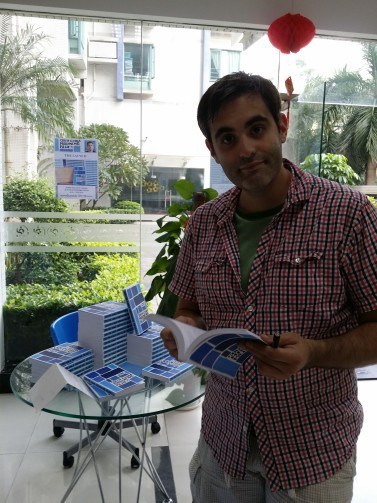 Hecht doesn’t sugar coat the seamier side of life, and some of his scenes are sexually explicit. As he said in an interview with Jocelyn Eikenburg, “I want to show all sides of real life. Using illegal substances, having irresponsible sex, pushing the boundaries, and making mistakes; these are all things that human beings actually do. And they are interesting things. I believe they are things worth writing about.”
Hecht doesn’t sugar coat the seamier side of life, and some of his scenes are sexually explicit. As he said in an interview with Jocelyn Eikenburg, “I want to show all sides of real life. Using illegal substances, having irresponsible sex, pushing the boundaries, and making mistakes; these are all things that human beings actually do. And they are interesting things. I believe they are things worth writing about.”
Whether you’ve ever traveled to or lived in China, I think you’ll find something new and interesting in South China Morning Blues.
Available for pre-order on Amazon.


December 11, 2015
The Chinglish of Meilin
Sometimes I like to the Meilin neighborhood of Shenzhen. It’s a bit of a halfway point between downtown and the suburban districts, and the vibe is just nice enough outside of the central urban areas. Check it out if you ever visit.
Anyway, recently I happened upon a trove of glorious Chinglish signs in an apartment complex within the area. There were more than these, but I had to stop taking pictures at a certain point. The themes of law-abiding were heavy in this scene…
(And do note my Instagram.) Enjoy:
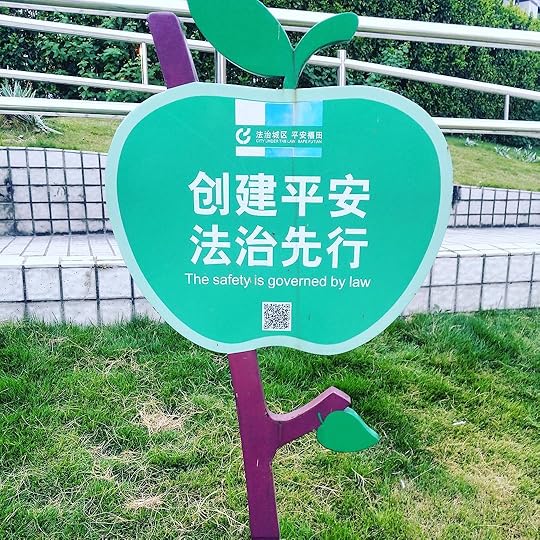
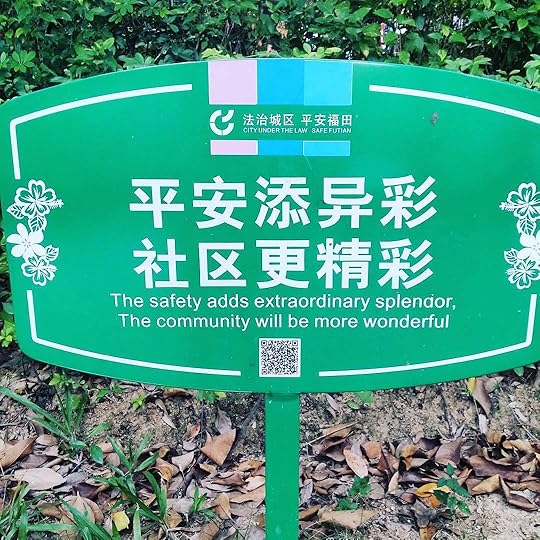

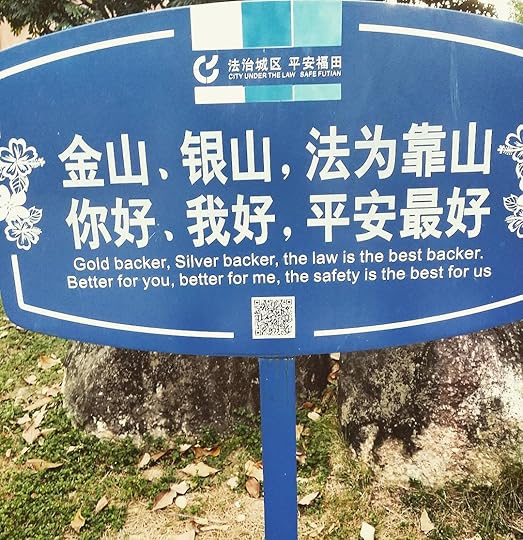
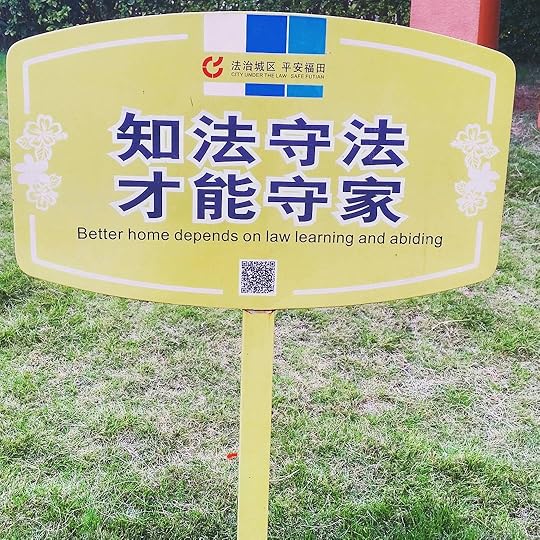


December 6, 2015
Radio Interview on Morning Brew in Hong Kong
Last Friday, I was honored to be invited to Phil Whelan’s Morning Brew show on Radio 3 in Hong Kong.
I was a bit nervous, but after doing a half-dozen odd promotional events for my novel South China Morning Blues I have indeed been getting better at this public speaking thing.
It was only less than a half-hour, and we talked fast. That’s how radio goes. Just hope I could keep up! Phil was nice, and spurred on a very interesting conversation. The topics were varied, as we delved into people-watching then censorship then about what can be gotten away with on television. Finally we went back to the topic of my book and I read a short excerpt.
I think it actually went well! I would love to do more shows like this in the future, if anyone will have me…
But I’m still not ready for a podcast.
Please check out the link below and click on the listening portion that says Ray Hecht – South China Morning Blues:
December 4, 2015
Wall Street Journal: That Time He ‘Dropped’ the Vegetarian Bun – An American Expat Shows His Dad Around China
Please check out my first piece for the Wall Street Journal expat blog! A simple story that us abroad may be able to relate to, and I think it turned out well: It’s about that time my dad came to visit me and how that parents-visiting thing goes as an expat…
And that’s my face when a bun is wasted.


December 1, 2015
Interview with Timo of CrazyChineseFamily.com
It’s been a while since I had any interviews with bloggers, but I have a great one for you now! Presenting Timo, of the blog Crazy Chinese Family. I recommend you check it out, one of the best for East meets West stories about the wife and cute kid and of course the crazy Chinese mother-in-law…
What inspired you to be a blogger?
I am actually not really sure what inspired me. I tried out blogging about ten years ago for a while but never really stuck with it and gave up after few months. Probably this was due to the non-existing focus. I was blogging about all kinds of things from art over economics to sports…
It took me a long time until I started with CrazyChineseFamily in 2013. Back then I had been together with my wife for over three years and somehow stories about my crazy Chinese mother-in-law just piled up. Then after my in-laws had been at our home in Finland for nearly a month I just couldn’t hold back any longer, I needed to share those stories and thus this blog was born.
What kind of blogs do you enjoy reading?
I love reading all kinds of blogs but the majority is about interracial relationships especially between Westerners and Asians. Other blogs are about travels, food (I just love food!) and also personal blogs by authors. Why authors you might think… Well, I actually started to write a novel some years ago but never even finished the first draft. Because of this I am really interested what tips sometimes authors share on their blogs, what hardships they go through, what they like to read and so on.
What kind of books do you like, and who are your favorite authors?
It is all about fantasy for me. I can’t say why but I just love the fantasy genre, nearly my entire book collection is about that topic. As any Fantasy geek my favorite author is Tolkien but there are so many other talented authors that I will just throw in a few of them randomly like Patrick Rothfuss, Steven Erikson, Robert Jordan, Brandon Sanderson and so on.
Besides fantasy books I also got a small manga collection. I guess I have roughly 300 manga in my shelves though I haven’t bought any new one for at least eight years. I have read mostly Shōnen and Seinen manga. Examples are Akira Toriyama’s Dragonball series, Rumiko Takahashi’s Ranma 1/2 and Inu Yasha, then of course Kouta Hirano’s Hellsing, and Kentaro Miura’s Berserk. Besides these manga which are much about fighting, I also read all kinds of other genres such as some cooking manga, or many about sports such as by Mitsuru Adachi. Now that I moved back to Germany I already took some notes on what manga are still missing in certain series, so I guess there is still hope that I will get back into this whole thing again.
You get personal in your blog at times. Have you ever gotten in trouble with your wife or mother-in-law by sharing too much?
My wife has no troubles about what I write about and truth to be told, my mother-in-law has no clue about this blog. I can’t even imagine what her reaction might be. It could be anything from being pissed at me, forcing her daughter to divorce me, or feeling honored and what not all else. She is a very unpredictable person so anything is possible.
However I have no doubt that she has her own micro blog on Weibo writing about her crazy son-in-law. As I never really write anything about myself my readers actually don’t know what kind of wacko I am myself but I have some blog posts planned to give more insights about that weird guy who writes about his crazy Chinese mother-in-law, but this is still work in progress soon.
Some of the situations your MIL gets into seem very stressful! Is there an element of therapy when it comes to sharing by blogging?
Definitely! I started to blog because there was just so much crazy stuff going on with my MIL. When she was for the first time with us in Finland weird things just happened on a daily basis. Not only that she did weird things but also her behavior such as that she never ever does anything wrong, it is always someone’s else’s fault…
So when I started to write these things down it help me to relax a bit even with her around. The hard part back in Finland was also that our apartment was tiny so there was no way to avoid her except by clearing my head through blogging about her and the rest of the family.
Any good crazy MIL story stands out that you’d like to share, as an introduction?
You know the feeling when you go with a little child to the Zoo and the little one got troubles getting animal names, right? It is pretty cute as you know that everything is still so new to them and that they have enough time to learn during their lifetime. This whole thing ain’t cute any longer when a grownup is calling a polar bear a sea lion, a seal is suddenly a big fish and a lynx transforms into a tiger. This particular grownup is my dear Chinese mother-in-law. According to herself she is the biggest animal lover in the world who knows how to treat them right. Ehm…perhaps in a sick and twisted parallel universe. She can’t tell what animal is right in front of her, she gives dogs the spiciest food she can get and she doesn’t understand why a dog should take a walk more than once a month. Anything else I should add to help you understand why I am so amazed by her animal love? I think not!
What originally brought you to China in the first place?
Pretty much my wife. Before I met her I didn’t have so much interest in China, I didn’t even eat much Chinese food before. All I knew about the country was from the news or what I learned back in school, nothing more. This changed when we started dating and I researched more about the country and the people in order not to appear like a total idiot in front of her. Some of my research back then helped, other stuff was pretty much useless such as learning more about the political situation etc. as she has even less clue about it than me back then.
In 2011 we had our first trip to China and it was amazing. I loved it right from the beginning, especially my wife’s home Xi’an. However I can’t imagine myself living there for a longer period but anything is possible in the future.
What is the story of how you met your wife?
We actually met in a Finnish course at the University in Finland. She was sitting in the row in front of me but we didn’t talk with each other for a long time. In fact we didn’t start talking until nearly a year passed by. I must say that Facebook was the main reason it actually developed much quicker after that one year of not even talking with each other. Two months later we started talking and another two years later we were married. The blog post Our Story: “How we Met” is all about how we got together in a more detailed version.
What are the big differences when it comes to living in Europe as opposed to China?
There are so many differences but they are mostly what you might expect such as the mentality of the people, the amount of people, how things are being done and of course the pollution. Back then we lived in Finland and it is so much different than China. The country isn’t big — only five million inhabitants — wonderful nature right at your doorstep and clean. Then Finland belongs to the countries with the lowest corruption rate in the world (though there is corruption, just done a bit different way than in China). In China the amount of people might be shocking for many people who are used to a half-secluded life. Everything is just noisy at first, kind of rough when you are used to waiting in line for the bus, not to speak even the whole thing about guanxi though this also exists in any other country just not so visible.
Do you have any advice for someone who might be marrying into a Chinese family?
Take your time. This is the only real advice I can give. Try to start things slowly and see how you can include their culture into your daily life. Sure there are differences depending on the family from very open to new things to very traditional. Because people are so different there can’t be any general advice on what to do, it is just learning by doing I guess.


November 27, 2015
Chinglish’agram
Here are some more Chinglish pics, previously seen on Instagram. Among others we have various signs, a lonely road, fries, a funny hat, and at the end a mythical guy I have always searched for and finally found: A Chinese gentleman with a cheesy English tattoo. The irony, get it?

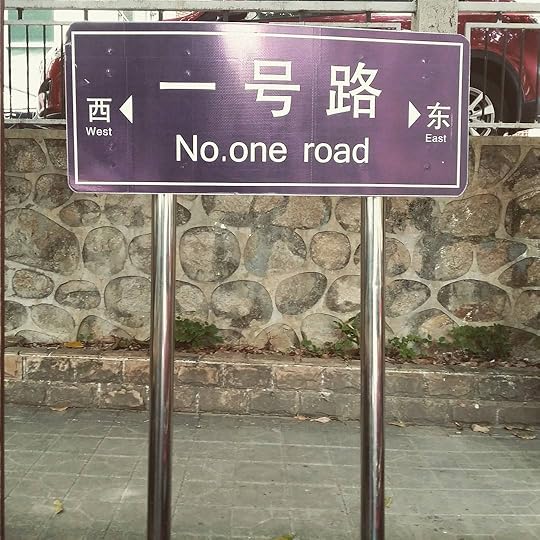

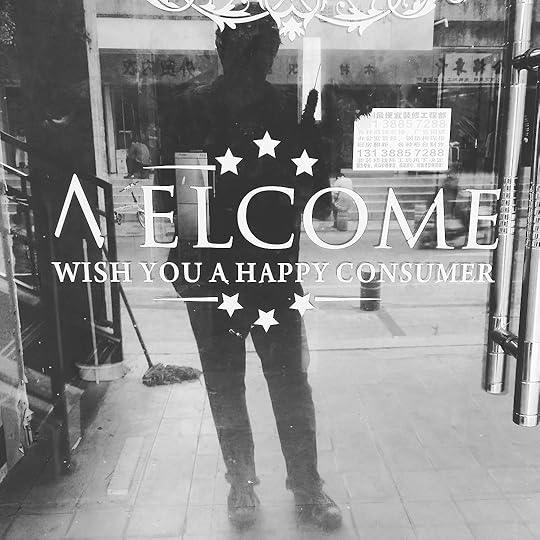
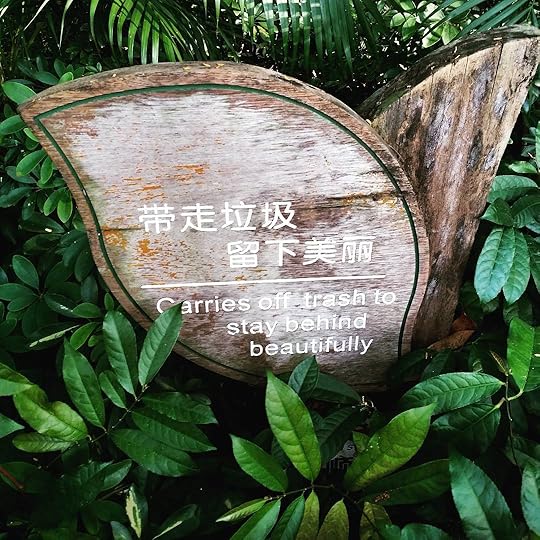




November 23, 2015
The thing about Shenzhen city bike cards…
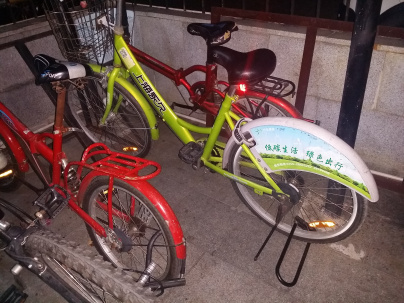 Funny story the other day. But a long story…
Funny story the other day. But a long story…
I happen to enjoy using my Shenzhen city bike card to get around (especially after my old bike was stolen, a story for another day). In very green fashion, the city has some bike rental stations set up around parks and tourists spots and some metro stations etc. It wasn’t easy going through the language barrier to set up my card and account in the first place, but for the past year I happily get around with the green bicycles.
Sometimes I am absent-minded however, and this happens.
Several weeks ago I parked the bike at a building at which I had business to attend. In a rush on the way out, I then took the bus home as I often did. Something didn’t stick in the back of my head.
One day, about two weeks later, my card didn’t work. How annoying. And when I went to the office in Nanshan District to inquire on my problem, they said I never returned a bike!
OH CRAP. The wheels in my head turned. I realized I really had ‘stolen’ a bike! What now? Could I actually get it back? Most likely I would lose the deposit. Would they even let me redo a new bike card? It was a disaster.
My girlfriend let me borrow her card to get around when I needed to, which helped ease my mind. Eventually, in replacing my steps within my memory, I passed by that building and decided to check.
Whoa, there was the bike. With a lock on it. Someone in the area had the gall to steal the bike, and just put their own lock on it, and then park it in the same place.
Well, what could I do? I picked up the bike and ran, that’s what I did! I carried it — couldn’t ride it because of the lock although the front wheel could roll — and took it like two blocks away to park it in the bike station and scan my card to show I had returned it. It was a real workout for my arms, especially in the sweaty South China sun.
The card worked. I felt a little bad though in taking someone’s bike, although they did steal it first. Wonder what happened when the guy found it missing. And from now on that bike will be parked at a station with a lock on the back wheel and nobody can even use it.
My card still doesn’t work. I imagine all the money is used up and I’ll need to recharge it. It will be embarrassing to return to the office, but beats losing the deposit.
And that’s the story.






